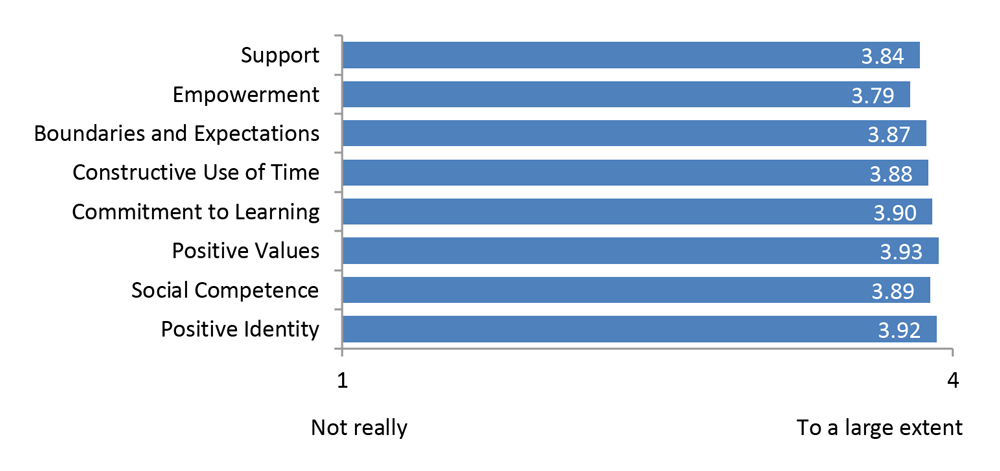Research Findings
RHCK Third-Party Evaluation
RezilientKidz contracted RMC Research Corporation to conduct an external evaluation of the program to determine its effectiveness and impact at three sites: Fort Worth, TX; San Antonio, TX; and Santa Ana, CA. These sites were selected to represent the different implementation types. Three hundred parents participated in the evaluation. The study included surveys and focus groups with parent participants and focus groups with program providers.
Parents considered Raising Highly Capable Kids™ to be a high-quality parent program. On both surveys and in focus groups, parents rated the program as highly informative and enjoyable and would recommend the program to a friend. Parents particularly saw the value of promoting commitment to learning, promoting positive values through communication and modeling, and understanding the importance of having neighbors and other adults in their children’s lives who care about them. Parents increased their knowledge and skill level of all eight asset categories, as shown in the graph.
Children whose parents participated in the program were observed by their parents to have changed and acquired assets as a result of parents changing their behaviors. Parents reported their children used time more constructively, were more motivated to learn, had stronger positive values, learned to plan ahead, felt better prepared to resist peer pressure, and assumed a more positive identity.
Meta-analysis of the report concluded that Raising Highly Capable Kids is 21% more effective than the average evidence-based parenting program included in this study.
Research on the Developmental Assets
Our Raising Highly Capable Kids program is based on the Search Institute’s 40 Developmental Assets.
Search Institute has studied Developmental Assets in the lives of over 6 million young people across the United States and around the world. Research consistently shows that young people from all backgrounds do better when they have a strong foundation of these strengths in their lives.
Grounded in extensive research in youth development, resiliency, and prevention, it identifies:
- The supports, opportunities, and relationships young people need across all aspects of their lives (called “external assets”); and
- The personal skills, self-perceptions, and values they need (called “internal assets”) to make good choices, take responsibility for their own lives, and be independent and fulfilled.
When youth have more assets, they are:
- More likely to thrive now and in the future
- Less likely to engage in a wide range of high-risk behaviors
- More likely to be resilient in the face of challenges
